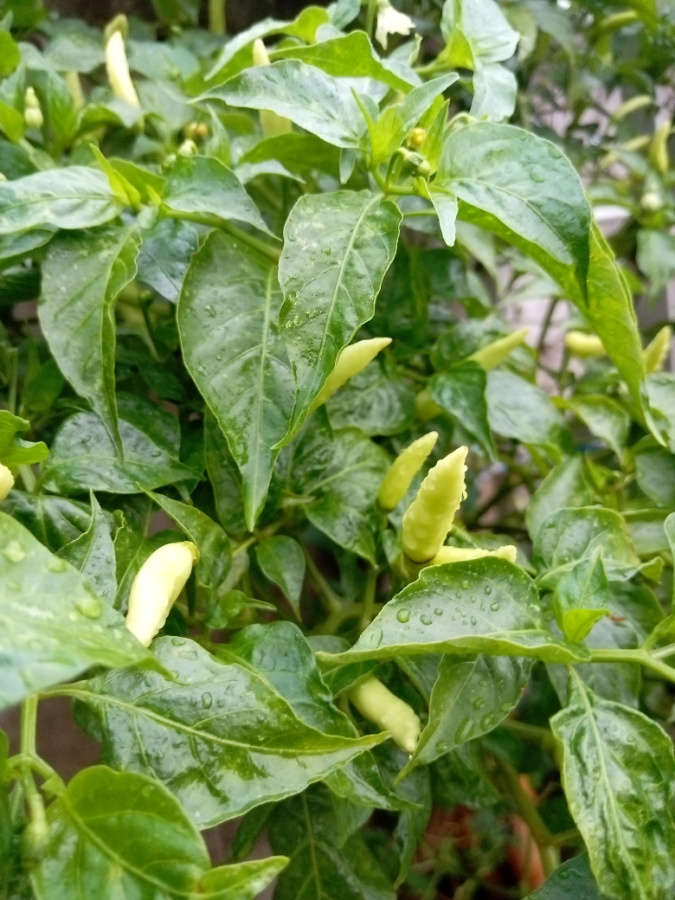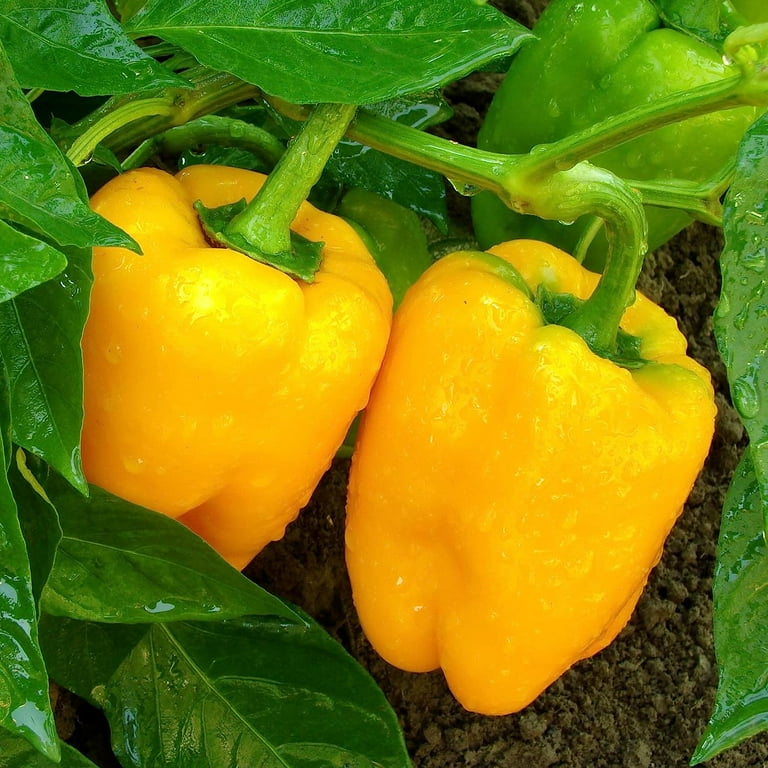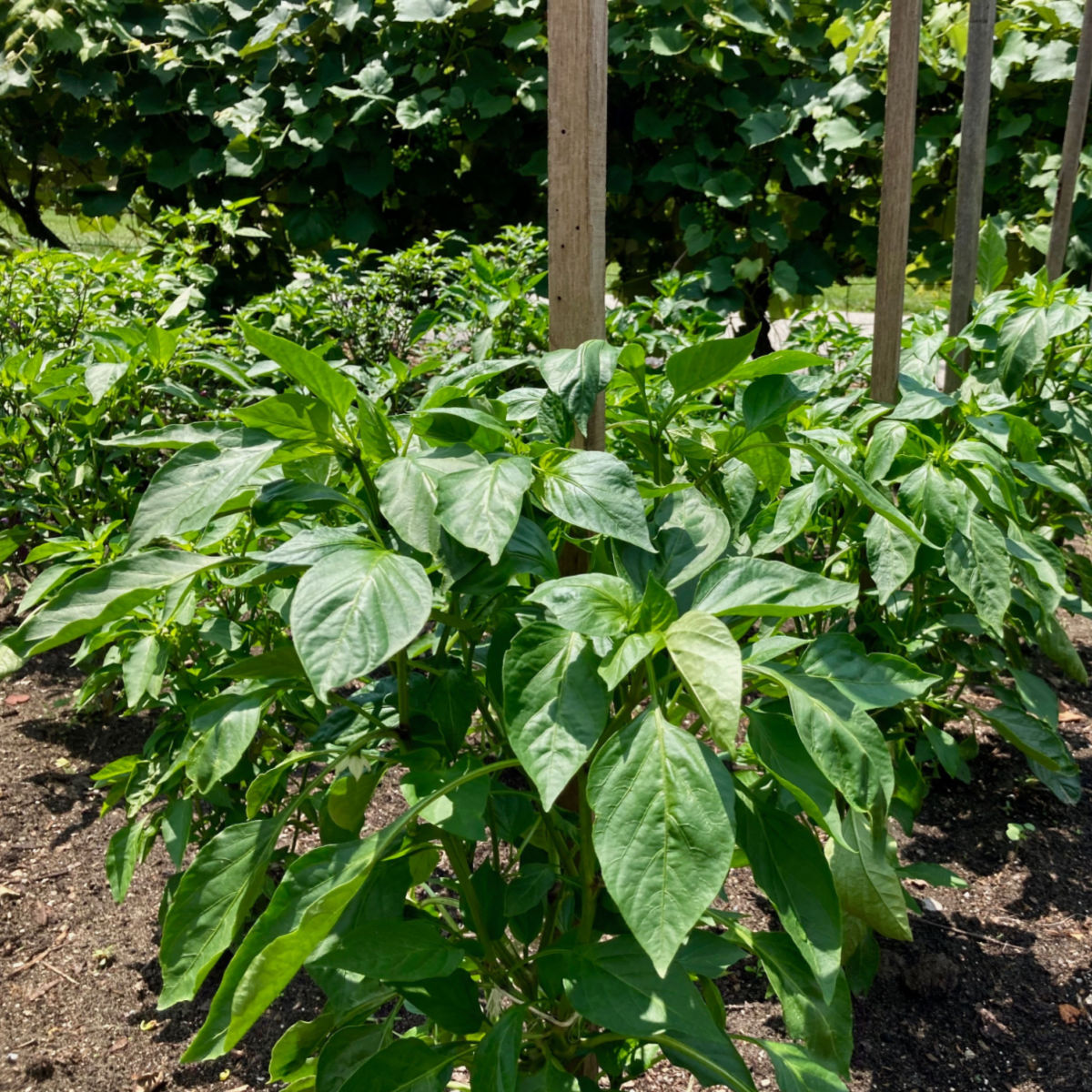Best Fertilizers for Peppers: Improve Growth and Taste with Our Top Picks
Best Fertilizers for Peppers: Improve Growth and Taste with Our Top Picks
Blog Article
How Fertilizers Play a Crucial Role in Growing Healthy and Bountiful Pepper Crops
Fertilizers function as the backbone of effective pepper farming, offering a calculated approach to nourishing the dirt and cultivating optimal plant development. The intricate dancing in between vital nutrients and the pepper plants' physiological processes highlights the pivotal role that fertilizers play in ensuring an abundant harvest. From sustaining durable origin growth to reinforcing disease resistance, the effect of plant foods is far-reaching in the growing of fruitful and healthy and balanced pepper crops. Remain tuned to reveal the nuanced methods which plant foods contribute to the prospering of pepper plants and the lasting techniques that underpin their efficiency.
Relevance of Nutrient-Rich Fertilizers
The usage of nutrient-rich fertilizers plays a pivotal duty in enhancing the efficiency and top quality of pepper plants in contemporary agricultural practices. Pepper plants call for a balanced mix of crucial nutrients to thrive and create high yields of top quality fruits. Phosphorus, potassium, and nitrogen are key nutrients that are essential for the growth and development of pepper plants. Nitrogen aids in leafed green development and overall plant vitality, phosphorus supports root advancement and flower manufacturing, while potassium contributes to disease resistance and fruit high quality.
Poor degrees of these nutrients can bring about stunted development, decreased yields, and sensitivity to illness (best fertilizers for peppers). Nutrient-rich fertilizers supply a targeted solution to guarantee that pepper plants receive the required aspects for optimum growth and performance. Furthermore, these fertilizers aid improve soil fertility with time, creating a sustainable setting for long-term pepper farming
Enhancing Plant Growth and Development
To optimize plant growth and growth in pepper crops, calculated application of nutrient-rich plant foods is necessary. Fertilizers play a critical function in boosting the general wellness and efficiency of pepper plants by supplying them with important nutrients that may be doing not have in the dirt.
In enhancement to these macronutrients, micronutrients such as iron, magnesium, and zinc are additionally important for the correct performance of different plant procedures. Iron, for example, is essential for chlorophyll production, which is important for photosynthesis and overall plant development. Zinc plays a critical function in enzyme activity and hormone synthesis, affecting plant growth and development at a cellular level. Magnesium is necessary for the development of chlorophyll and total energy transfer within the plant.

Boosting Condition Resistance With Fertilizers
By tactically incorporating targeted plant foods, farmers can strengthen the condition resistance of pepper crops, making sure optimal plant wellness and productivity. Fertilizers consisting of crucial nutrients like nitrogen, potassium, and phosphorus play a vital role in enhancing pepper plants' immune systems, making them more durable to numerous illness. Nitrogen, for example, aids in the production of proteins that are crucial for plant defense reaction. Phosphorus adds to root advancement, allowing plants to much better absorb nutrients and water, therefore boosting their capacity to fend off illness. Potassium manages procedures that improve overall plant wellness, making peppers more durable against virus.

Making Best Use Of Pepper Yield With Fertilization
Utilizing a balanced fertilizing approach is vital to achieving optimum pepper return and making certain optimum plant performance. By giving peppers with the right nutrients at the appropriate time, farmers can significantly improve their yield potential. Nitrogen, potassium, and phosphorus are crucial aspects for pepper growth, with nitrogen assisting in leaf and stem advancement, phosphorus sustaining origin development and blossom formation, and potassium advertising general plant health and wellness.
To make the most of pepper yield, it is important to perform soil tests to establish existing nutrition levels and identify any deficiencies that need to be resolved. Based upon these results, farmers can create a tailored fertilization strategy that fulfills the specific requirements of their pepper crops. Additionally, proper fertilization strategies such as split applications throughout the growing period can guarantee continuous nutrient accessibility for the plants.

Lasting Fertilizer Practices for Peppers
In considering sustainable plant food practices for peppers, it is important to concentrate on long-lasting dirt health and wellness and ecological stewardship in combination with making the most of crop performance. Sustainable fertilizer methods aim to maintain or enhance dirt fertility while lessening damaging ecological influences. One crucial strategy is using natural fertilizers such as garden compost, manure, or cover crops, which not just supply crucial nutrients to the peppers however likewise contribute to soil framework and microbial activity. These organic choices assist construct natural matter Read Full Report in the soil, enhancing its ability to maintain water and nutrients, consequently sustaining lasting crop wellness and durability.
Additionally, accuracy agriculture methods, such as soil testing and targeted nutrient applications, can aid maximize plant food usage, guaranteeing that peppers receive the nutrients they need without excess overflow into rivers. This not only profits the environment by lowering air pollution yet additionally conserves expenses for farmers by minimizing waste. By adopting sustainable plant food practices, pepper growers can secure the health of their plants, dirt, and surrounding ecological communities for future generations.
Conclusion
To conclude, plant foods are necessary for cultivating healthy and balanced and bountiful pepper plants. best fertilizers for peppers. They supply necessary nutrients for plant growth and development, increase disease resistance, and make best use of return. By carrying out sustainable plant food techniques, farmers Continued can make certain the long-lasting health and wellness of their pepper plants and add to a more efficient and environmentally-friendly agricultural system
The intricate dance between important nutrients and the pepper plants' physical processes highlights the essential duty that fertilizers play in guaranteeing a bountiful harvest.To maximize plant growth and advancement in pepper plants, calculated application of nutrient-rich fertilizers is important. Plant foods play an essential duty in enhancing the general health and efficiency of pepper plants by supplying them with essential nutrients that may be lacking in the dirt.By tactically incorporating targeted fertilizers, farmers can boost the disease resistance of pepper plants, guaranteeing optimal plant health and wellness and efficiency. Plant foods containing important nutrients like nitrogen, potassium, and phosphorus play a crucial function in reinforcing pepper plants' immune systems, making them a lot more resistant to various diseases.
Report this page